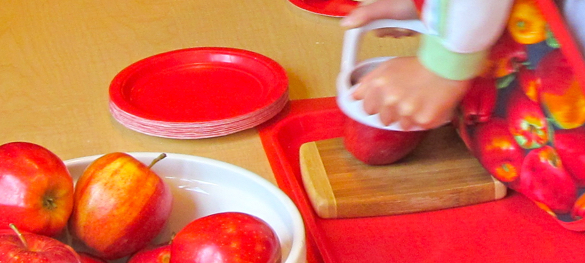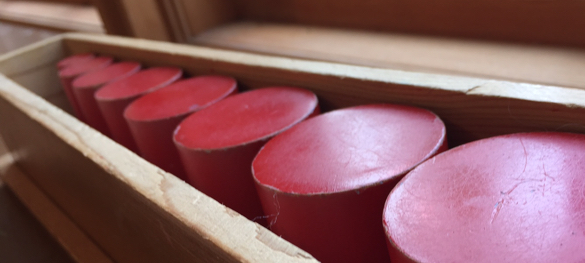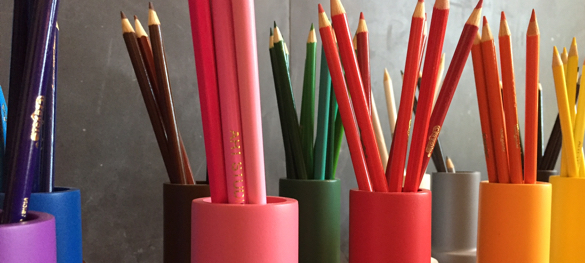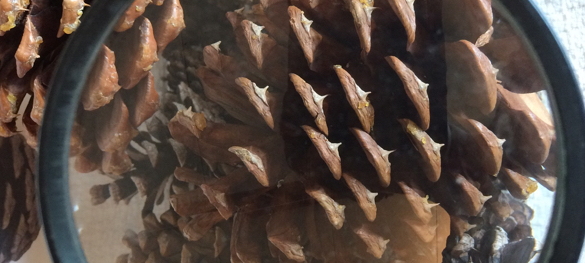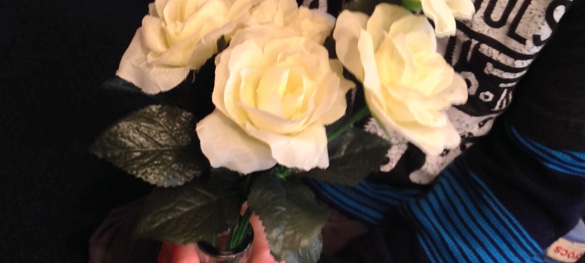The Montessori Method and philosophy of education was developed by Dr. Maria Montessori (1870-1952). Dr. Montessori was one of the first female physicians and researchers of child development. She believed that every child learned best at their own pace in a curriculum rich non-competitive environment. By providing the child with a carefully prepared environment the child has the opportunity to reach his/her full potential.
Words spoken by teachers are chosen carefully to encourage children to be independent, intrinsically motivated critical thinkers.
“The essence of independence is the ability to do something for one’s self.” Dr. Maria Montessori
Areas of Study
Practical Life
The Practical Life curriculum prepares the child indirectly for all other areas of the Montessori curriculum. Activities encourage order, concentration and independence. Some Practical Life activities include pouring, food preparation and sorting. Care of self, care of the environment as well as grace and courtesy (manners) are learned here.
Sensorial
Through the exploration of various Montessori materials with varying dimensions, textures, shapes, smells and tastes; all the facilities of the child are developed.
Language
Ages 3-6 are a sensitive period for a child’s language development. The objectives of the language area include the development of listening skills, vocabulary and comprehension.
The language area curriculum includes oral activities, phonetic alphabet works, writing and reading comprehension. Initial sounds are introduced with sandpaper letters, matching objects and sound buckets. The movable alphabet is then introduced and word formation begins. Reading of words comes naturally after this sequence.
Metal insets are used to refine pencil control and small motor development. This then leads to improved writing skill.
Math
Math Materials focus on the fundamental skills needed to calculate. Children learn number recognition and linear counting early on. This prepares the child for addition, subtraction, multiplication and division.
Physical and Cultural Geography
As children begin to develop the concept of space in the prepared environment, globes, maps, land and water forms are introduced. Children are anxious to learn the names of states, countries and continents. Through activities about individual continents children learn how as a people we are the same and how we are different. Children learn about man’s basic needs. This area exposes children to a healthy well-rounded and non-judgmental exploration of all the peoples on the planet.
Art and Music
We will explore and learn about many different genres of music and art.The children will have the opportunity to listen to music every day. Morning circle always includes music and singing.
Our art shelf offers many choices for your child. Water color painting, cutting and pasting, coloring and special themed projects.
Learn more about our Music and More program!
Botany and Zoology
Here children learn to distinguish between living and non-living, plant or animal, man made or nature made. There will be in depth areas of study throughout the school year. Through exploration using their five senses children are excited to learn.
Some areas of study are insects, habitats, mammals, birds, reptiles, ladybugs, butterflies, the weather. Is a spider an insect? Why or why not? There is so much to explore and so little time!
Our study of Botanywill include flowers, trees, native and non native species, fruit or vegetable, seeds and roots.
We will learn about recycling and how we can help keep our planet healthy. We will actively recycle in our classroom.
Helping Others
At the center of the Montessori philosophy is the belief that we are all capable of peace, kindness, compassion and the ability to help others and our planet. At Arletta Montessori we believe in helping others, their families and their pets too. This may include but is not limited to an individual, a family, a group or specific organization. When a need is determined we respond with kindness, our time, goods and services.

